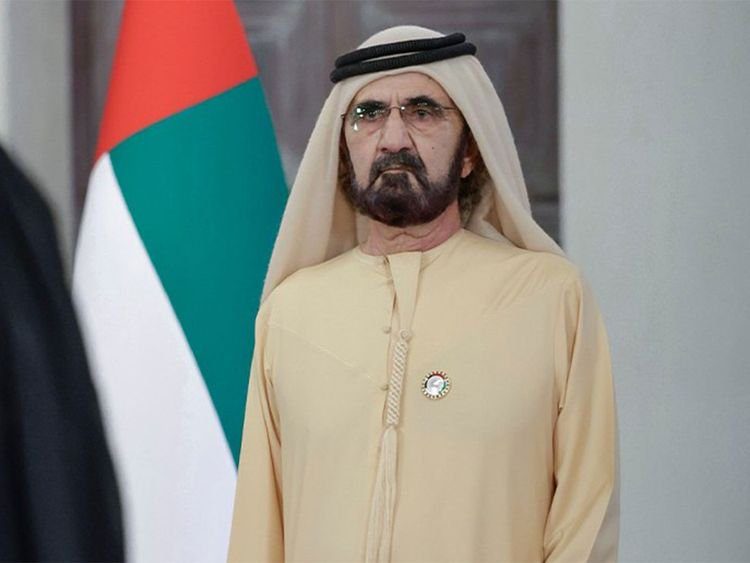The Government of Dubai has unveiled its largest-ever budget plan for the 2025-2027 cycle, committing to an unprecedented financial allocation of Dh302 billion in revenues and Dh272 billion in expenses. This landmark budget, announced by His Highness Sheikh Mohammed bin Rashid Al Maktoum, UAE Vice President, Prime Minister, and Ruler of Dubai, emphasizes the emirate’s vision for sustainable financial growth, robust infrastructure development, and enhanced social services for residents.
Announcing the budget on his social media platform, Sheikh Mohammed stated, “Today, we approved Dubai Government’s budget for 2005-2027, with revenues of Dh302 billion and expenses of Dh272 billion, marking it as the largest budget in the emirate’s history. A substantial 46 per cent of next year’s budget is allocated to major infrastructure projects, including roads, bridges, energy, and water drainage networks, alongside the construction of a new airport. A 30 per cent of the budget is dedicated to health, education, social development, housing and other essential community services.”
The allocation underscores the government’s commitment to driving economic growth, while prioritizing residents’ quality of life. Sheikh Mohammed added, “Next year’s budget will achieve an operating surplus of 21 per cent of total revenues for the first time, aiming to establish long-term financial sustainability for the Government of Dubai.”
An additional portfolio of Dh40 billion for public-private partnerships was launched to support the budget, with Sheikh Maktoum bin Mohammed leading the initiative. Sheikh Mohammed affirmed, “Dubai moves confidently toward the future, with solid, resilient, and sophisticated financial sustainability. The next phase promises even greater progress, and the best is yet to come.”
The fiscal year 2025 budget projects expenditures of Dh86.26 billion and an operating surplus backed by estimated revenues of Dh97.66 billion. A general reserve of Dh5 billion has been set aside to safeguard the emirate’s financial stability and promote ambitious developmental goals aligned with the Dubai Plan 2030, Dubai Economic Agenda D33, and Quality-of-Life Strategy 2033.
Supporting Social Services and Infrastructure
Social services will receive 30 per cent of the total expenditures in 2025, covering critical areas such as healthcare, education, housing, and family support programs. The budget also aligns with the Dubai Social Agenda 33 and Education Strategy 2033, reinforcing a long-term commitment to societal welfare.
In addition, Dubai’s budget dedicates 46 per cent to advancing infrastructure. This investment encompasses comprehensive plans for roads, tunnels, bridges, renewable energy systems, and rainwater drainage initiatives, supporting projects like the Al Maktoum Airport expansion and smart transport systems.
Dubai Finance Director General Abdulrahman Saleh Al Saleh noted, “Dubai Finance is committed to achieving the government’s financial sustainability, enhancing competitiveness and transparency, and boosting the emirate’s attractiveness for investment. Our financial plans are designed to be both flexible and scalable.”
Driving Financial Efficiency and Public-Private Partnerships
The Director General highlighted that the budget aligns with the Dubai Strategic Plan 2030 and Economic Agenda D33, while supporting the recently launched Dubai Cashless Strategy. He affirmed, “Our focus is on increasing government support for key areas such as social development, housing for citizens, enhancing government operations, digitalising life in Dubai, advancing scientific research, boosting institutional agility, and strengthening the emirate’s global competitiveness.”
The budget also emphasizes efficiency in public spending and leveraging public-private partnerships. Aref Abdulrahman Ahli, Executive Director of the Planning & General Budget Sector at DF, remarked, “The vision of Sheikh Mohammed bin Rashid Al Maktoum, supported by the directives of Sheikh Hamdan bin Mohammed bin Rashid Al Maktoum, have been a driving force for sound financial planning. Thanks to their guidance, we were able to develop an unprecedented three-year financial plan, the largest in the history of the emirate.”
Strategic Digitalization and Cashless Economy
The three-year plan further integrates digital initiatives, enhancing the payment processes through the Smart Installment System and Biometric Payment System, as explained by Ahmad Ali Meftah, Acting Executive Director of the Central Accounts Sector. In line with the Dubai Cashless Strategy, he stated, “Our Dubai Cashless Strategy, announced recently by the Government of Dubai, aims to achieve 90 per cent cashless transactions in both public and private sectors by 2026.”
This comprehensive budget reflects Dubai’s ambitious strides toward economic resilience, financial prudence, and social betterment, solidifying its place as a global hub for innovation and sustainable development.


